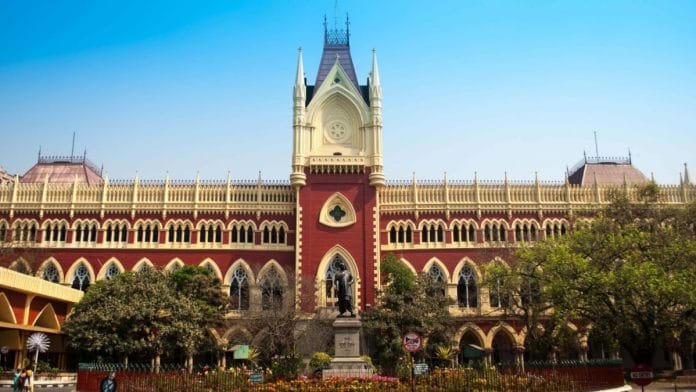Even as the Supreme Court recently asked states to file status reports on vacancies and pendency in State Information Commissions to strengthen the Right to Information Act ecosystem, the high courts of India don’t seem to be delivering on the judiciary’s promise of free and fair flow of information under the law.
Given the judiciary’s endorsement, over the years, of furthering the cause of transparency, one would imagine exemplary compliance across the board. In November 2019, the Supreme Court of India had even passed a judgment reiterating that the office of the Chief Justice of India falls under the purview of the RTI Act. Unfortunately, the reality is quite divorced from the promising judicial pronouncements that have been made over the years.
The Vidhi Centre for Legal Policy’s 2019 report titled Sunshine in the Courts: Ranking the High Courts on their Compliance with the RTI Act found that high courts across the country are using the discretionary powers granted under the Act to circumvent its provisions, adopting poor practices in their RTI cells and simply not disclosing and publishing sufficient information on their website.
Also read: Reviewing implementation of RTI Act provisions an ongoing process, govt tells Lok Sabha
Using the Act to circumvent the Act
Under Section 28 of the RTI Act, public institutions are delegated critical discretionary powers to formulate rules to govern procedures that are to enable the implementation of the Act. Such procedures can determine the application fees, mode of payment, fee for obtaining copies of documents and the authority to which the payment has to be made. The research found that some rules did not just contravene the spirit of the parent Act but were even ultra vires. For instance, some high courts have mandatory provisions that restrict the number of questions, charge higher application fees or impose a mandatory format. Some do not even make the RTI rules available on their website, thereby acting as a major barrier to a citizen’s right to information. The most outrageous of these provisions is the extension of the grounds on which information may be denied to the citizens. Unfortunately, such rules have been framed by as many as 13 high courts.
Further, even when the RTI rules may be completely legal, they can continue to cause inconvenience to citizens. For instance, while it may be completely legal for a high court to accept payment only in cash, it can become quite difficult to send the RTI application by post, making it effectively mandatory for citizens to file all applications in person. Another barrier that is faced by the citizens is the lack of availability of the RTI rules in local languages — this in effect isolates a large local population who may not be proficient in English. The Allahabad High Court and the Patna High Court are the only two high courts across the country that provide the rules in local languages. Madhya Pradesh High Court is the only high court that has an online portal for filing applications, albeit with its own challenges. Given the restrictions on movement owing to the pandemic, the lack of an online portal is a major inconvenience for the potential applicants.
Also read: Using AI tools in judicial process can improve justice delivery, but amplify biases: Report
Poor proactive disclosures and compliance
Apart from empowering citizens, the Act, under Section 4, also imposes a positive obligation on high courts to make voluntary disclosure of information on their website, bringing India at par with transparency laws across the world. Such a mandate, as explained by the Central Information Commission, is necessary because it minimises the need of a citizen to request information. Unfortunately, the research found that only 15 out of the 25 high courts made any such proactive disclosures on their website.
Even the information published varied highly. While some high courts left out significant documents such as budgetary and expenditure statements or details of the public information officers, others made it very difficult to locate them on their respective websites. For instance, the Guwahati High Court had the disclosures in the form of an RTI notification while the Himachal Pradesh High Court had it under the ‘Announcements’ tab. Most of these documents were not provided in the local language, isolating a large part of the non-English speaking population.
The District Courts judiciary performed even poorly. Unfortunately, there were states where none of the district courts made any disclosure at all. In contrast, Kerala and Punjab & Haryana were the only two jurisdictions where almost all district courts made some kind of disclosures. Where some disclosures were made, almost all of them were only in English. District courts being the first point of contact for many litigants, it becomes imperative for them to provide adequate information in both English and local languages. It must also be ensured that such disclosures should be regularly updated.
High courts are integral institutions within India’s rule of law framework. They set the standards for transparency and are responsible for the administration of justice for their respective states and the district judiciary. While the judiciary has promoted transparency in the past, including declaring an ‘open government’ an implicit fundamental right under Article 19(1)(a) of the Constitution of India, it seems to have failed in internalising this spirit. The high court’s current compliance with the RTI Act is telling of how a well-intended and promising law can fail when institutions resist it.
Shreya Tripathy @ShreyaTripathy3 is Research Fellow with the JALDI (Justice, Access and Lowering Delays in India) Initiative at the Vidhi Centre for Legal Policy. Vaidehi Misra is a Senior Resident Fellow with the JALDI. Views are personal.
(Edited by Anurag Chaubey)






